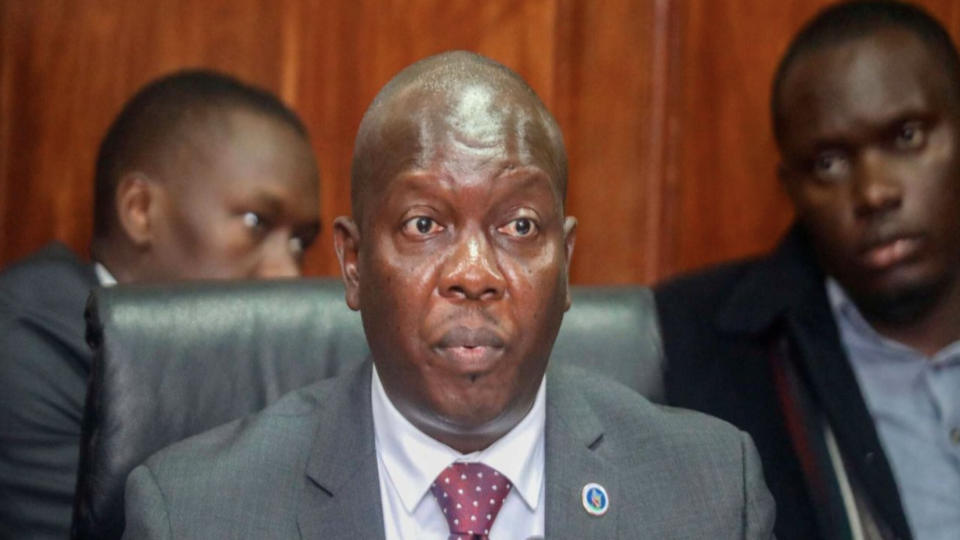Court Permits Withdrawal of Charges Against Former KNTC Official in Edible Oil and Rice Import Case
In a significant development in the ongoing edible oil and rice import scandal, a Nairobi court has granted the Director of Public Prosecutions (DPP) permission to withdraw corruption charges against Amos Juma Sikuku, a former senior manager at the Kenya National Trading Corporation (KNTC). The decision, made by the Milimani Anti-Corruption Court on August 26, 2025, was based on the DPP's assessment that the evidence against Sikuku was insufficient to sustain the case.
The edible oil and rice import scandal centers on allegations of procurement irregularities within KNTC during 2022. Sikuku, who previously served as the corporation's Supply Chain and Logistics Manager, was charged alongside Pamela Nduku Mutua, the former KNTC Managing Director. The charges stemmed from investigations into the improper handling of procurement processes for rice and edible oil imports, which allegedly violated established regulations.
Sikuku faced a single count of abuse of office, while Mutua was charged with five counts of willful failure to comply with procurement laws. The case, initiated on July 30, 2024, has drawn significant attention due to its implications for transparency and accountability in public procurement processes.
Principal Magistrate Charles Ondieki, presiding over the case, approved the DPP’s request to drop the charges against Sikuku, citing insufficient evidence. The DPP’s review of the case revealed that Sikuku’s role was limited to providing a professional opinion, which was not binding on KNTC’s accounting officer, who held the ultimate responsibility for ensuring compliance with procurement laws. The court emphasized that continuing the case against Sikuku would not serve the public interest and could constitute an abuse of the judicial process.
The ruling allows the prosecution to amend the charges and permits Mutua to recall witnesses for further cross-examination. So far, six of the prosecution’s 33 listed witnesses have testified in the case, which remains ongoing against Mutua, who has denied the charges and is currently out on bond.
The withdrawal of charges against Sikuku marks a pivotal moment in the case, highlighting the challenges of prosecuting complex corruption cases involving public procurement. The decision underscores the importance of robust evidence in sustaining charges and raises questions about the accountability mechanisms within KNTC during the period in question.
While Sikuku has been cleared, the case against Mutua continues, with the court focusing on her alleged role in violating procurement regulations. The outcome of her trial could have broader implications for KNTC’s operations and the oversight of public procurement processes in Kenya.
The edible oil and rice import scandal has sparked widespread concern about governance and transparency in Kenya’s public sector. The KNTC, a state corporation responsible for facilitating trade and stabilizing commodity prices, has been under scrutiny for its handling of high-value procurement deals. The court’s decision to allow the withdrawal of charges against Sikuku reflects a commitment to ensuring that only substantiated cases proceed, aligning with the broader goal of maintaining public trust in the judicial system.
As the case progresses, legal analysts and the public alike are closely monitoring developments, particularly regarding Mutua’s trial and any potential reforms to prevent similar issues in the future. The Milimani Anti-Corruption Court’s handling of this case is expected to set a precedent for how procurement-related corruption cases are addressed in Kenya.
The court has scheduled further proceedings to address the amended charges and additional witness testimonies. Mutua’s legal team is expected to leverage the opportunity to recall witnesses, which could provide new insights into the case. Meanwhile, the DPP’s office continues to review evidence to strengthen its case against remaining defendants.
This development serves as a reminder of the complexities involved in tackling corruption within public institutions and the critical role of the judiciary in balancing accountability with fairness.


